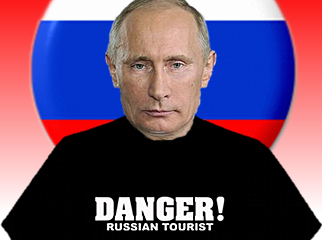 Russian authorities have closed 662 ‘underground’ casinos during a recent coordinated action against illegal gambling. On Monday, the head of inspection for the Russian Interior Ministry’s Moscow office revealed that the Zaslon-1 (Screen-1) special operation had also closed 4,747 establishments illegally supplying alcohol to thirsty Russians, seizing over 31 tonnes of hooch in the process.
Russian authorities have closed 662 ‘underground’ casinos during a recent coordinated action against illegal gambling. On Monday, the head of inspection for the Russian Interior Ministry’s Moscow office revealed that the Zaslon-1 (Screen-1) special operation had also closed 4,747 establishments illegally supplying alcohol to thirsty Russians, seizing over 31 tonnes of hooch in the process.
It’s no secret that unauthorized casinos have proliferated since July 2009, when Russia banished all gambling to four largely inaccessible geographic locations (including the Primorye region near Vladivostok where Lawrence Ho is braving a trail for international developers). But the term ‘underground’ took on literal meaning in June, when police discovered a massive complex underneath a Moscow market housing over 200 illegal Asian immigrants slaving away in the garment trade. In order to ensure that their ’employees’ didn’t feel the need to venture above ground, the organizers of this subterranean sweatshop had seen fit to equip their hellhole with a café, a cinema and yes, a casino.
Despite the restrictions put upon their gambling habits, Global Betting and Gaming Consultants CEO Warwick Bartlett told Bloomberg that Russians spend an average of $170 per person on gambling every year, more than twice the global average of $82. Small wonder then, that other countries are hoping to tap into Russian casino tourism.
Finland’s state slots and casino monopoly operator RAY recently announced plans to build a casino in Vaallmaa, a town on the Finnish-Russian border. RAY hopes to open the 2,600-square-meter facility by summer 2015. Those gamblers seeking a little more sunshine with their slots will be encouraged by the fact that Cyprus is hoping to trade on its ‘special relationship’ with Russia to boost its proposed casino operations. According to Austrian gaming consultant Paul Herzfeld, Cyprus “could be for Russians what Mallorca is for Germans.”
While waiting for these and other options to develop, Russians can currently journey to casinos in Belarus. The country has witnessed the creation of a thriving junket business bringing Russian gamblers to gaming joints in Minsk such as the White Tower, Dankoff Club and Mirage. The popularity of the Belarusian capital among Russian gamblers also made it an obvious choice to host the 2013 Russian Gaming Week conference and exhibition on Nov. 27 and 28. Junket tourism will be among the hot topics discussed at RGW 2013, in addition to the marketing of online gambling services, the affiliate business and the vast potential of sportsbetting among Russian punters. Full details can be perused at Minsk.rgweek.ru.
